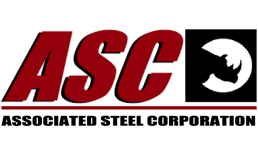You do not have to be a metallurgist or engineer to accurately order steel. But you don’t want to order steel plates and end up with dishes. Take some time to ensure your language will be understood by the vendor. I’m not speaking about dialects, but try to avoid esoteric terms that may just be what you use at your company. Avoid jargon. Take a moment to familiarize yourself with the terms the vendor uses. You will quickly learn there are common terms that will help to avoid misunderstandings.
In general steel suppliers and steel service centers are used to working with people that may need help drilling down to what they actually need. Mills on the other hand are a different animal all together. They don’t need calls from every person trying to fix air fryer. Still, they get calls that should never have been directed to them. As a result, and I’m just sayin’, they can get testy and come across a bit like a bear with a sore behind.
I remember a call I made early in my career. I was mumbling and stumbling around when the person kindly interrupted with; “Look kid, when you know what it is your looking for, give us a call.” It helps to get your ducks in a row before you make that call.
The first thing you are going to want to present is the “family” the steel belongs to; is it mild steel, carbon steel, alloy steel, stainless, tool steel, or a non-ferrous grade like brass or bronze. The general form the steel takes should be right here. Is it wire, coil, sheet, angle, bar, shapes, or some other form? They should ask what hardness, or what finish? Try to answer those questions with industry familiar language. “I don’t want it to be hard to machine.” Is not good, for all they know, you may be the worst machinist in the world. “I want to see a reflection but it shouldn’t stretch my head a lot.” No help there either.
Next advise the specific size shape length and quantity. Get this out of the way quickly. I have been in long conversations about applications and failures only to find out the customer was actually looking for wire or coil, or some other form that we didn’t handle.
If it is a repeat order, mention that upfront. It will save both of you a lot of time.
Caution on the length. Does it need to be an exact length (you will need a tolerance), or can you take a random bar length? See previous posts on random bar lengths. A common mistake is asking for a 36ft length because you’ve calculated your mults (finish lengths) to be optimal from that length. That results in a lot of no quotes. Advise your mults first. Then advise how many “finish length pieces” you will need.
When you are discussing quantities and descriptions, the following are universally accepted; Pieces, Bars, Sheets, Plates, Tons, Metric Tons, etc. If it is thin plate you can use the words sheet or plate; although sheet is understood to be thinner. Those items can be purchased in pieces, pounds, tons, hundred weight (cwt). Thick plate, maybe heavier than 3/16” thick, should always be plate.
Bars may be pieces, bars, or rods, even sticks will work. ”Bundles” should be avoided.
Food for thought; If every order you place is a “Rush-Breakdown”, you should know that after a while your urgent need won’t even be heard by your supplier.
A group of crows is a “Murder of Crows”. Just in case that ever comes up.
-Howard Thomas, April 5th 2021
